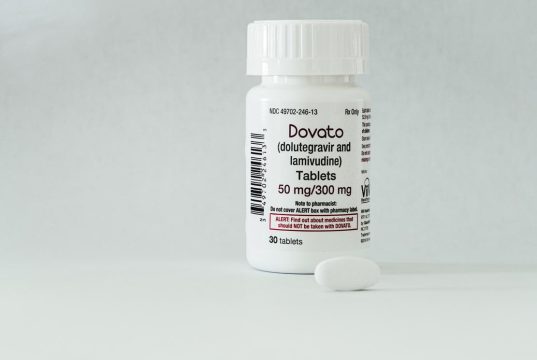Advertisment
Positive results from second phase III study evaluating once-daily relugolix combination therapy in women with endometriosis.- Myovant Sciences.
Myovant Sciences announced top-line results from SPIRIT 1, the second of two Phase III studies of once-daily relugolix combination therapy (relugolix 40 mg plus estradiol 1.0 mg and norethindrone acetate 0.5 mg) in women with pain associated with endometriosis.
Relugolix combination therapy met its co-primary efficacy endpoints and all seven key secondary endpoints in the SPIRIT 1 study. In addition, relugolix combination therapy was generally well-tolerated and resulted in minimal bone mineral density loss over 24 weeks.
Consistent with the previously announced SPIRIT 2 study, relugolix combination therapy achieved both co-primary endpoints by demonstrating clinically-meaningful pain reductions for 74.5% of women with dysmenorrhea (menstrual pain) and 58.5% of women with non-menstrual pelvic pain, compared to 26.9% and 39.6% of women in the placebo group, respectively (p-values < 0.0001). On average, women receiving relugolix combination therapy had a 73.3% reduction on the 11-point (0 to 10) Numerical Rating Scale for dysmenorrhea from 7.3 (severe pain) to 1.8 (mild pain). All seven key secondary endpoints measured at Week 24 and compared to placebo achieved statistical significance, including changes in mean dysmenorrhea and overall pelvic pain, impact of pain on daily activities as measured by the Endometriosis Health Profile-30 (EHP-30) pain domain, greater proportions of women not using analgesics (p-values < 0.0001), changes in mean non-menstrual pelvic pain (p = 0.0002), greater proportions of women not using opioids (p = 0.0005), and changes in mean dyspareunia (painful intercourse) (p = 0.0149).
Relugolix combination therapy was generally well-tolerated with minimal bone mineral density loss over 24 weeks . The overall incidence of adverse events in the relugolix combination and placebo groups was similar (71.2% vs. 66.0%). In the relugolix combination therapy group, 3.8% of women had adverse events leading to discontinuation of treatment versus 1.9% in the placebo group. The only reported adverse events in at least 10% of women in the relugolix combination group were headache and hot flashes. There was one pregnancy in the relugolix combination group and three in the placebo group.
Eligible women who completed the SPIRIT 1 or SPIRIT 2 studies were offered the opportunity to enroll in an extension study and receive relugolix combination therapy for an additional 80-week period, resulting in a total treatment period of up to 104 weeks. The one-year results of this extension study, expected in the first quarter of 2021, will form the basis of the New Drug Application (NDA) together with the efficacy and safety data from the SPIRIT 1 and SPIRIT 2 studies.





